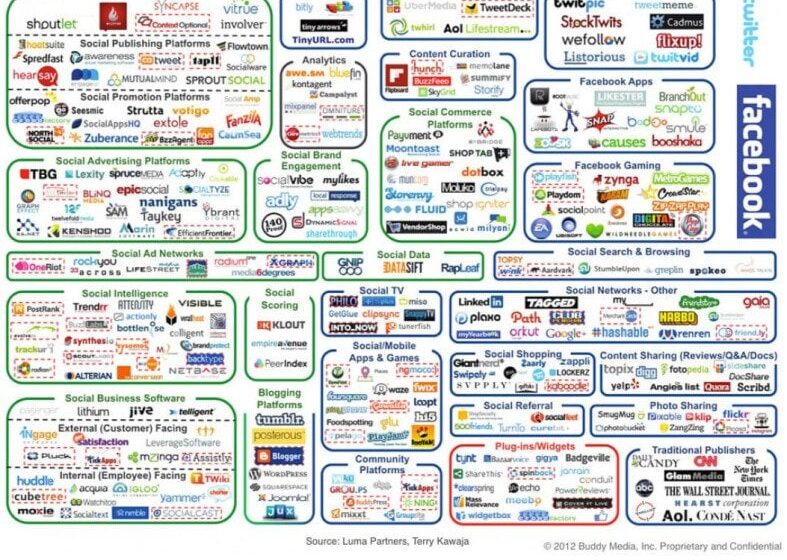
Social Media Has Become An Indispensable Tool For Businesses To Connect With Their Audience
Social media has become an indispensable tool for businesses to connect with their audience, build brand awareness, and drive engagement. To effectively manage social media platforms, social media managers need to adhere to certain key principles. In this document, we will explore the key principles that
Popular Social Media Tools and Platforms
When it comes to managing your brand’s presence on social media, utilizing popular social media tools and platforms can be a game-changer. Here are some of the most widely used tools and platforms that can help you effectively manage your social media presence:
- Facebook: With over 2.8 billion monthly active users, Facebook remains the largest social media platform. It offers a wide range of features, including business pages, ads manager, and audience insights, making it a powerful tool for businesses to connect with their target audience.
- Instagram: Known for its visual nature, Instagram is a platform that focuses on sharing photos and videos. It offers various features such as stories, feed posts, IGTV, and reels, allowing businesses to showcase their products or services creatively. Instagram also has a business account option with insights and advertising capabilities.
- Twitter: Twitter is a microblogging platform known for its real-time updates and 280-character limit. It is popular for its fast-paced nature and is often used for news updates, customer service, and engaging with influencers. Twitter also offers analytics and advertising options for businesses.
- LinkedIn: LinkedIn is a professional networking platform primarily used for business and career-related purposes. It is a valuable tool for B2B marketing, recruitment, and personal branding. Businesses can create company pages, share industry-related content, and connect with professionals in their field.
- YouTube: As the second-largest search engine after Google, YouTube is a video-sharing platform with billions of users. It is a powerful tool for businesses to share video content, tutorials, product demos, and even livestream events. YouTube advertising and analytics options are also available.
- TikTok: TikTok is a short-form video platform that has gained massive popularity, particularly among younger audiences. It offers creative features and viral challenges, making it an ideal platform for brands targeting Gen Z. TikTok also offers advertising options for businesses.
- Pinterest: Pinterest is a visual discovery platform where users discover and save ideas for various interests. It is popular for DIY, recipes, fashion, home decor, and more. Businesses can create visually appealing pins and boards to showcase their products or services.
- Hootsuite: Hootsuite is a popular social media management platform that allows you to schedule, manage, and analyze your social media content across multiple networks. It provides a centralized dashboard for managing accounts, monitoring conversations, and measuring performance.
- Google Analytics: While not exclusively a social media tool, Google Analytics provides valuable insights into your website’s traffic sources, including social media. It allows you to track the effectiveness of your social media campaigns and measure their impact on website traffic.
- Canva: Canva is a graphic design tool that simplifies the process of creating visually appealing social media posts, banners, and ads. It offers pre-designed templates, fonts, and images, making it easy for businesses to create professional-looking graphics without extensive design skills.
Utilizing these popular social media tools and platforms can streamline your social media management efforts, enhance your brand’s visibility, and ultimately drive meaningful results. Experiment with different platforms and tools to find the combination that works best for your business and target audience. Social media has become an indispensable tool for businesses to connect with their audience, build brand awareness, and drive engagement. To effectively manage social media platforms, social media managers need to adhere to certain key principles. In this document, we will explore the key principles that every social media manager should follow to succeed in their role.
- Understand and Define Objectives: The first step in social media management is to clearly understand the objectives of your business or brand. Whether it’s increasing brand awareness, driving website traffic, or generating leads, defining your goals will help you develop a focused social media strategy.
- Identify and Target the Right Audience: To maximize the impact of your social media efforts, it is crucial to identify and target the right audience. Research your target audience’s demographics, behaviors, and preferences to tailor your content accordingly. Building an engaged community of followers who are genuinely interested in your brand will yield better results.
- Consistent Branding: Maintain consistent branding across all social media platforms. Use your company logo, colors, and fonts consistently to create a cohesive brand identity. Consistent branding helps to reinforce your brand image and make it easily recognizable to your audience.
- Content Strategy: Develop a well-rounded content strategy that aligns with your brand’s messaging and purpose. Create a mix of educational, entertaining, and promotional content to keep your audience engaged. Regularly evaluate your content performance and make necessary adjustments to improve engagement and reach.
- Engage and Interact: Social media is all about building relationships and engaging with your audience. Respond promptly to comments, messages, and mentions, showing that you value your followers’ opinions and feedback. Initiate conversations, ask questions, and encourage user-generated content to foster a strong sense of community.
- Monitor and Analyze: Implementing an effective monitoring and analytics system is crucial for social media success. Use social media monitoring tools to track mentions, monitor sentiment, and identify trends in real-time. Analyze key metrics such as engagement, reach, and conversion rates to measure the effectiveness of your social media efforts and make data-driven decisions.
- Stay Up-to-Date with Trends: Social media platforms and trends evolve rapidly, and it’s essential for social media managers to stay current with the latest updates. Regularly follow industry blogs, attend webinars, and participate in relevant online communities to keep up with the latest tools, features, and best practices.
- Cross-Platform Optimization: Each social media platform is unique, and optimizing your content for each platform is crucial. Understand the nuances of different platforms such as Facebook, Instagram, Twitter, LinkedIn, and tailor your content format, tone, and style accordingly.
- Crisis Management: Social media crises can happen unexpectedly, and effective crisis management is vital. Have a clear plan in place to address any potential crises promptly and transparently. Respond professionally, empathetically, and take necessary steps to resolve the issue while protecting your brand’s reputation.
- Continuous Learning: Social media is a dynamic field, and staying ahead requires continuous learning and experimentation. Keep exploring new strategies, tools, and techniques to enhance your skills and stay competitive in the ever-evolving social media landscape.
In conclusion, social media managers play a pivotal role in helping businesses achieve their marketing objectives. By adhering to these key principles of social media management, you can effectively manage and grow your brand’s presence on social media platforms, connect with your audience, and drive meaningful results. Stay committed to these principles, keep learning, and adapt to the ever-changing social media landscape for long-term success.







